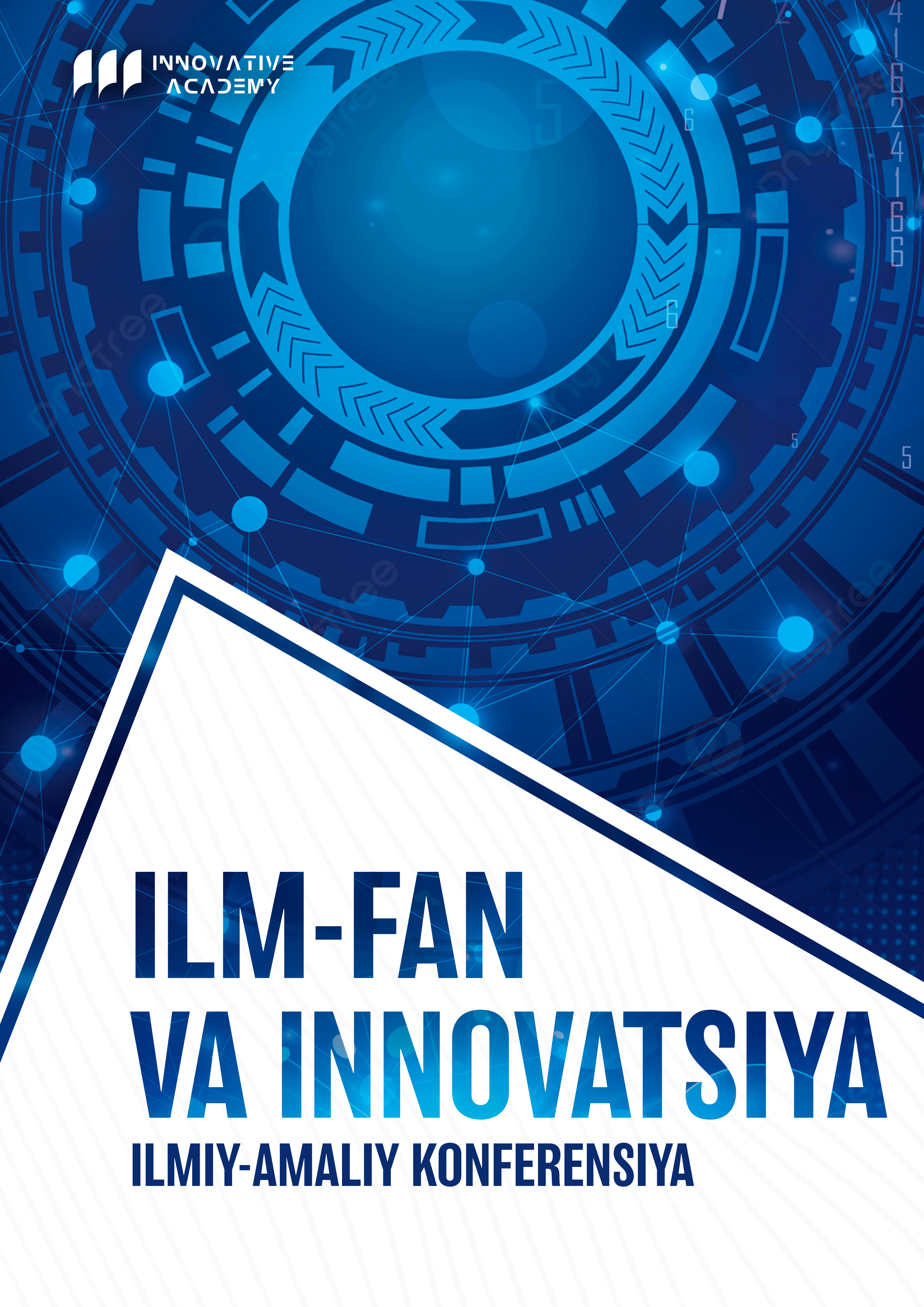INNOVATIVE TECHNOLOGIES IN THE TEACHING OF SPECIALIZED SUBJECTS
Main Article Content
Аннотация:
In today's society, innovation technologies have spread to almost every field of
human activity, including education. This phenomenon gained special significance within the
improvement and modernization of the established educational system due to the
incorporation of innovation technologies into the educational process practice. Currently, the
issue of active integration and widespread application of innovative technologies in education
is critical. The current study investigates learning innovation technologies in modern
education.
Article Details
Как цитировать:
Библиографические ссылки:
Abdulina, О. (1995). Actual problems of pedagogical education. Journal of Higher School
of Kazakhstan, 5, 58-63.
Adolf, V. (1998). Theoretical bases of formation of professional competence of teachers.
Moscow: Nauka, 344.ILM-FAN VA INNOVATSIYA
ILMIY-AMALIY KONFERENSIYASI
in-academy.uz/index.php/si
Babanskiy, Yu. (1992). Competence model: from the idea to the educational program.
Moscow: Nauka, 366.
Bogoyavlenskaya, D. (1991). Formirovanie pedagogicheskikh sposobnostey.
[Development of pedagogic skills]. M.: Pedagogika, 124.
Gershunskiy, B. (1997). Philosophy of Education for the XXI Century. Moscow: Nauka,
Ibraeva, I., Stukalenko, N. (2014). O razvitii poznavatelnoy aktivnosti buduschikh
pedagogov. [On the development of cognitive activity in the prospective teachers].
International journal of experimental education, 8, 56-57, http://www.rae.ru.
Al-Emran, M., Elsherif, H. M., & Shaalan, K. (2016). Investigating attitudes towards the
use of mobile learning in higher education. Computers in Human Behavior, 56, 93-102.
Hsu, Y. C., Ching, Y. H., & Grabowski, B. L. (2014). Improving science learning outcomes
for ESL students: A simulation-assisted inquiry learning approach. Educational Technology
Research and Development, 62(2), 191-208.
Ke, F., & Kwak, J. (2013). Online learning across ethnicity and age: A study on learning
interaction participation, perception, and learning satisfaction. Computers & Education, 61,
-51.
Kim, J., & Bonk, C. J. (2006). The future of online teaching and learning in higher
education: The survey says… Educause Quarterly, 29(4), 22-30.
Mertala, P., & Tissari, V. (2017). Gamification as an educational tool: Case studies in
teaching statistics and research methods. Journal of Teaching and Learning with Technology,
(1), 67-79.
Sitzmann, T. (2011). A meta-analytic examination of the instructional effectiveness of
computer-based simulation games. Personnel Psychology, 64(2), 489-528.
Wu, H. K., Lee, S. W. Y., Chang, H. Y., & Liang, J. C. (2013). Current status, opportunities
and challenges of augmented reality in education. Computers & Education, 62, 41-49.
Zhang, D., Zhou, L., Briggs, R. O., & Nunamaker, J. F. Jr. (2006). Instructional video in elearning: Assessing the impact of interactive video on learning effectiveness. Information &
Management, 43(1), 15-27.

